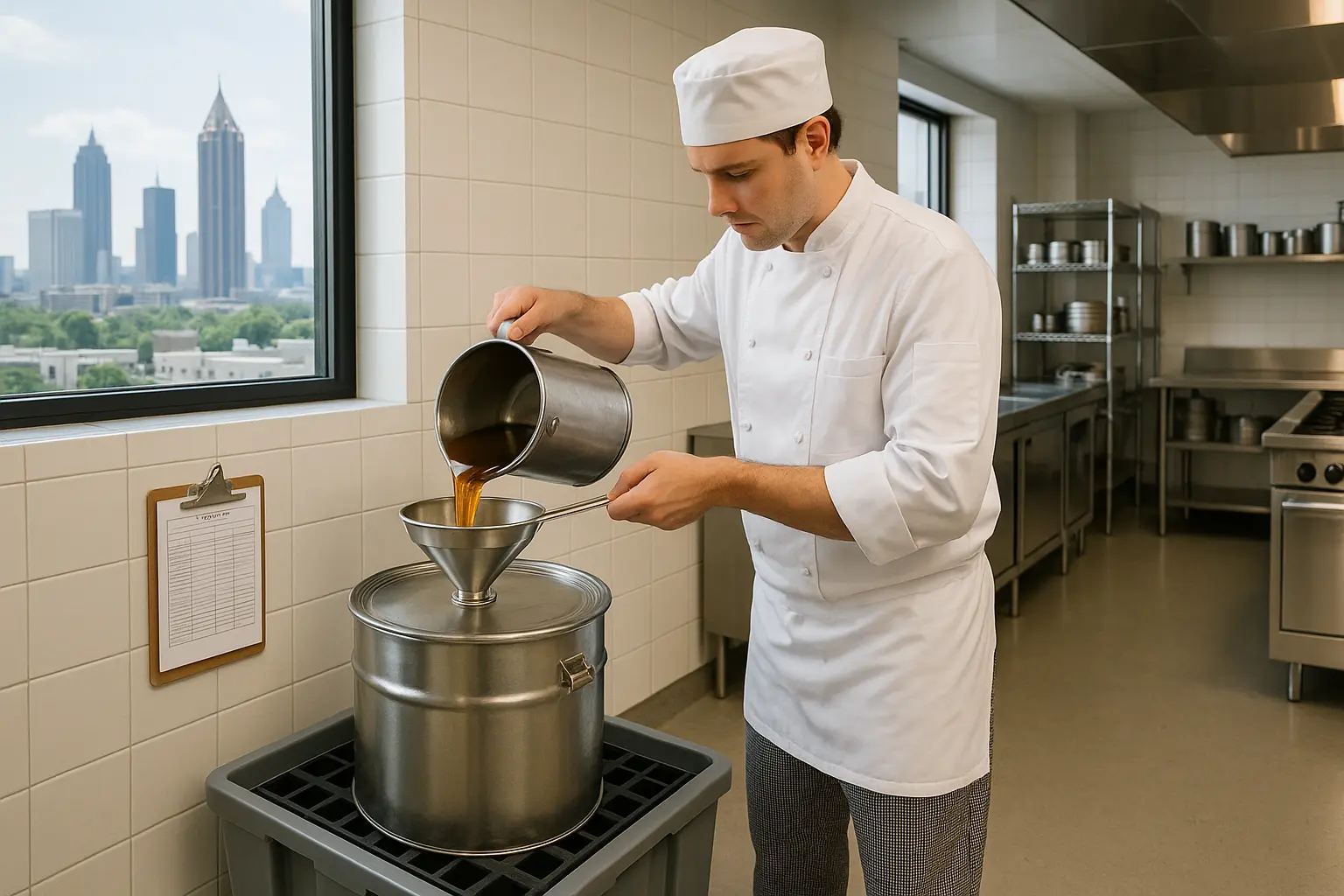
·
Atlanta Used Cooking Oil Regulations
This step‑by‑step guide unpacks every law that governs used cooking‑oil storage and disposal in Atlanta; and shows you how to stay inspection‑ready while earning from your waste grease.

·
Cooking Oil Compliance Guide
Understand EPA, fire‑code, and city FOG rules, choose compliant containers, arrange licensed hauling, and avoid fines with this step‑by‑step guide to restaurant used‑oil storage and disposal regulations.

·
How to Store and Prepare Used Cooking Oil for Free Pickup
Store used cooking oil like a pro: pick the right container, cool and filter safely, secure the pad, and stage seamless pickups that please inspectors, drivers, and diners alike, consistently.
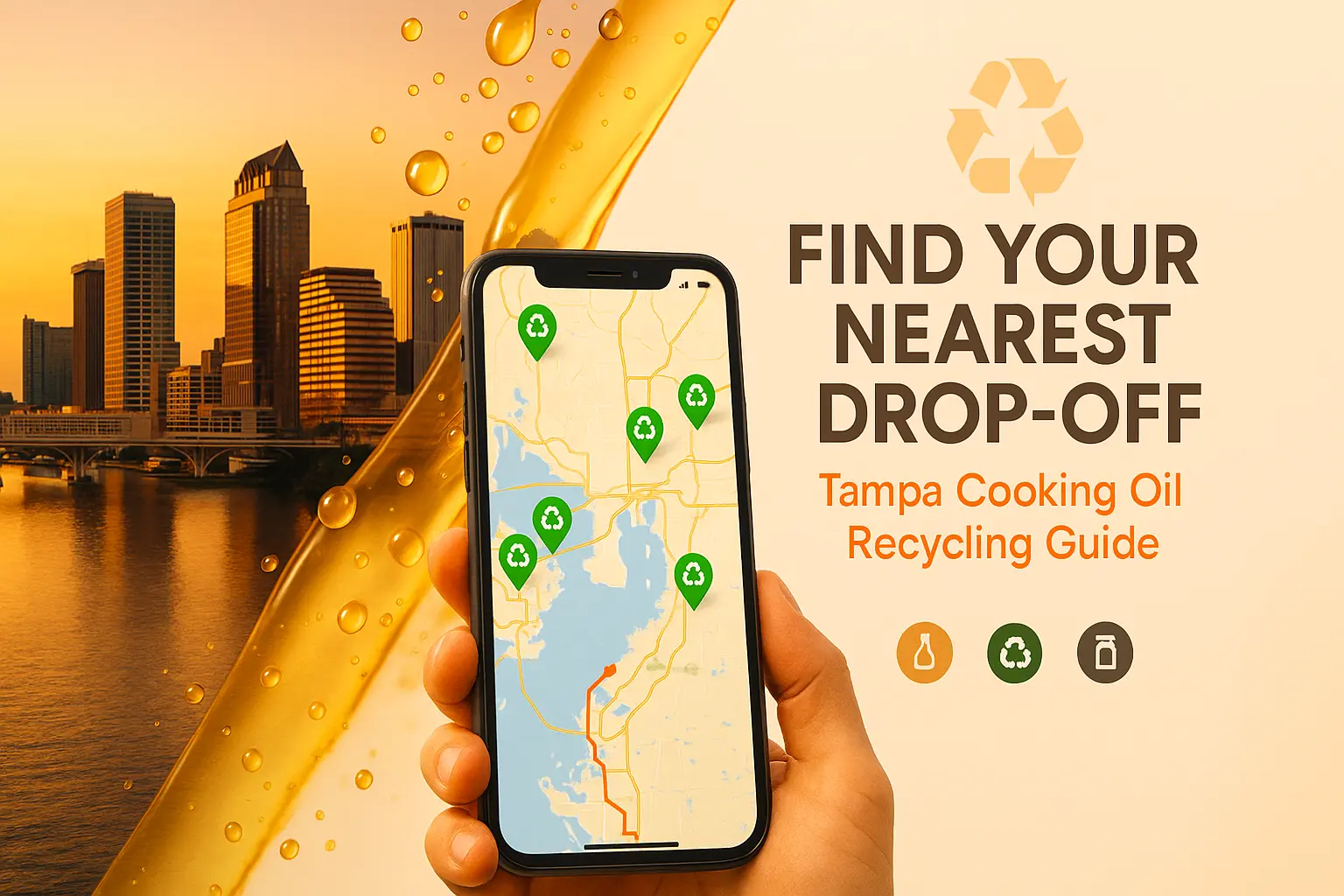
·
Nearest Used Cooking Oil Recycling in Tampa Guide
Luckily, Hillsborough County has built a network of public drop off stations, private haulers, and specialty recyclers that turn yesterday’s french fry fuel into tomorrow’s biodiesel.

·
Why pouring cooking oil down the drain destroys plumbing (and how to stop it)
Liquid fat turns solid the moment it meets a cool pipe, leading to clogs, fatbergs, and four‑figure repair bills. Use the three‑step method below to keep your sink, wallet, and waterways clear.
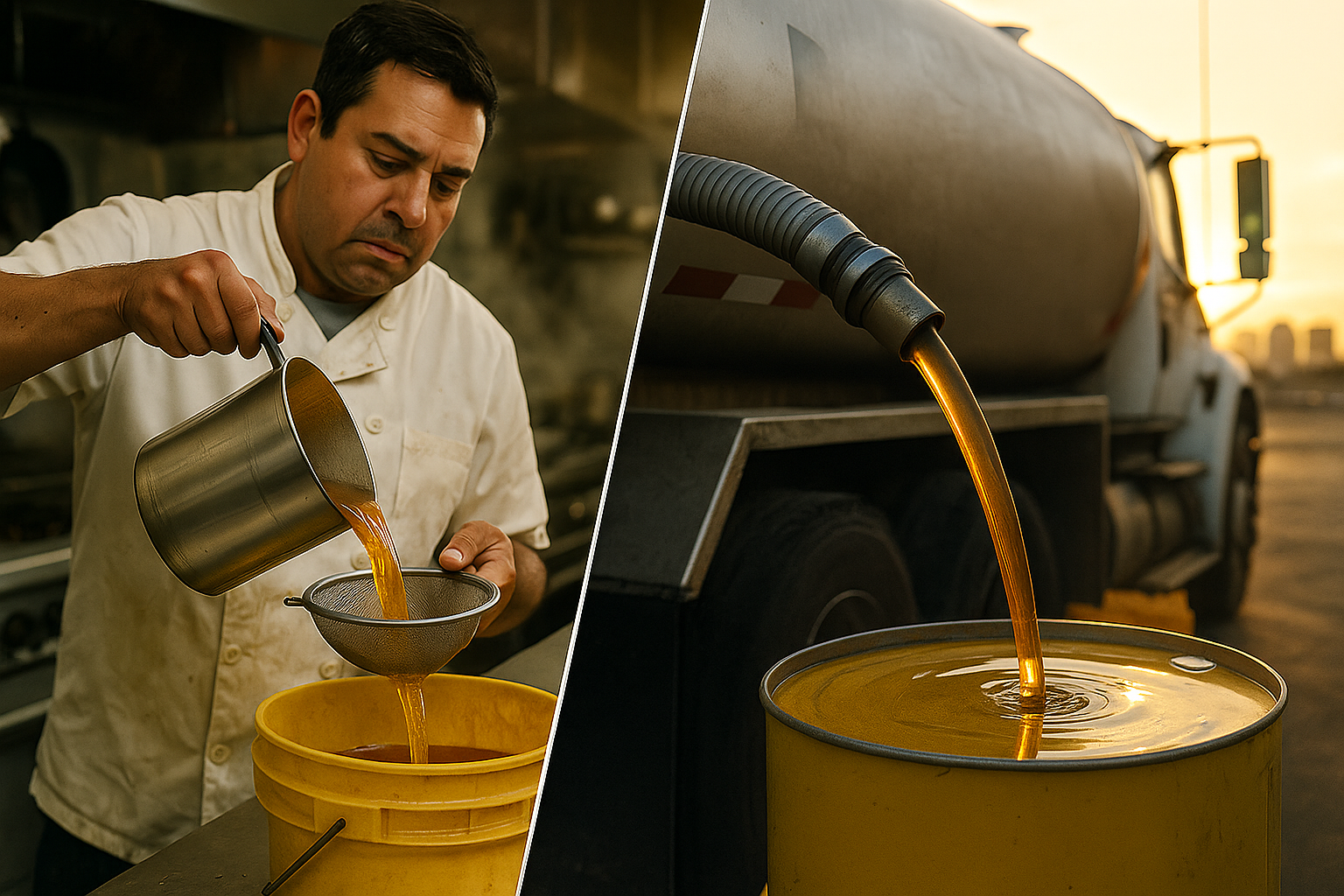
·
Commercial Cooking Oil Disposal & Recycling Options (2025 Guide)
Restaurant waste into revenue. Commercial cooking oil sells for $0.33-0.44/pound through biodiesel programs, automated systems, and co-ops. Complete 2025 guide with regulations, pricing, and disposal methods.

·
Restaurant Used Cooking Oil: Disposal, Recycling & Revenue Guide
Restaurant used cooking oil recycling prevents $50,000 environmental fines while generating rebates up to $0.65/gallon. Choose wrong disposal methods and face sewer blockages, plumbing disasters, and permanent closure.
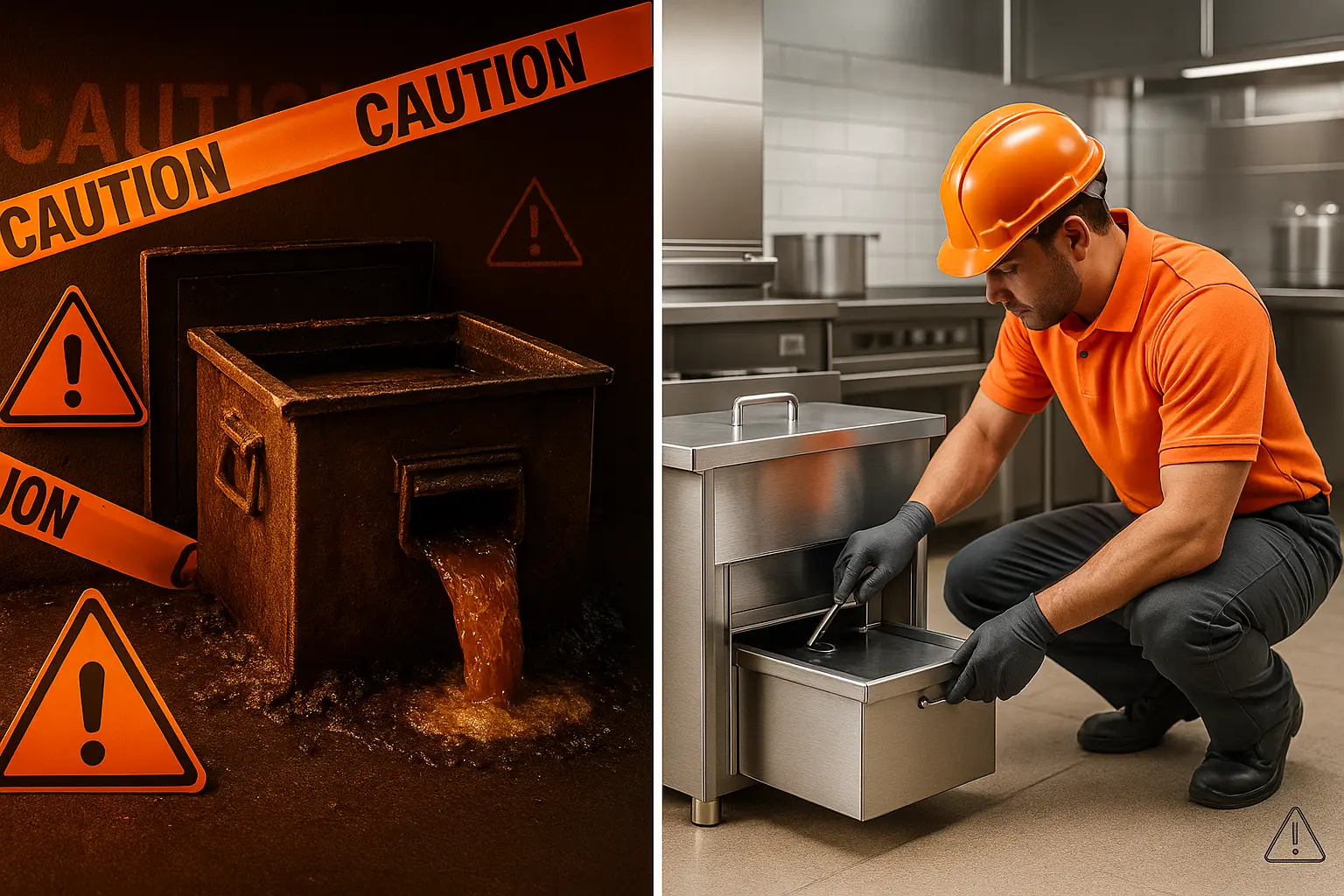
·
How to Clean a Grease Trap (and How Often You Should)
Skip grease trap cleaning and face $10,000 fines, sewage flooding your commercial kitchen, and health inspectors shutting you down. Clean your grease trap at 25% capacity to avoid disasters.
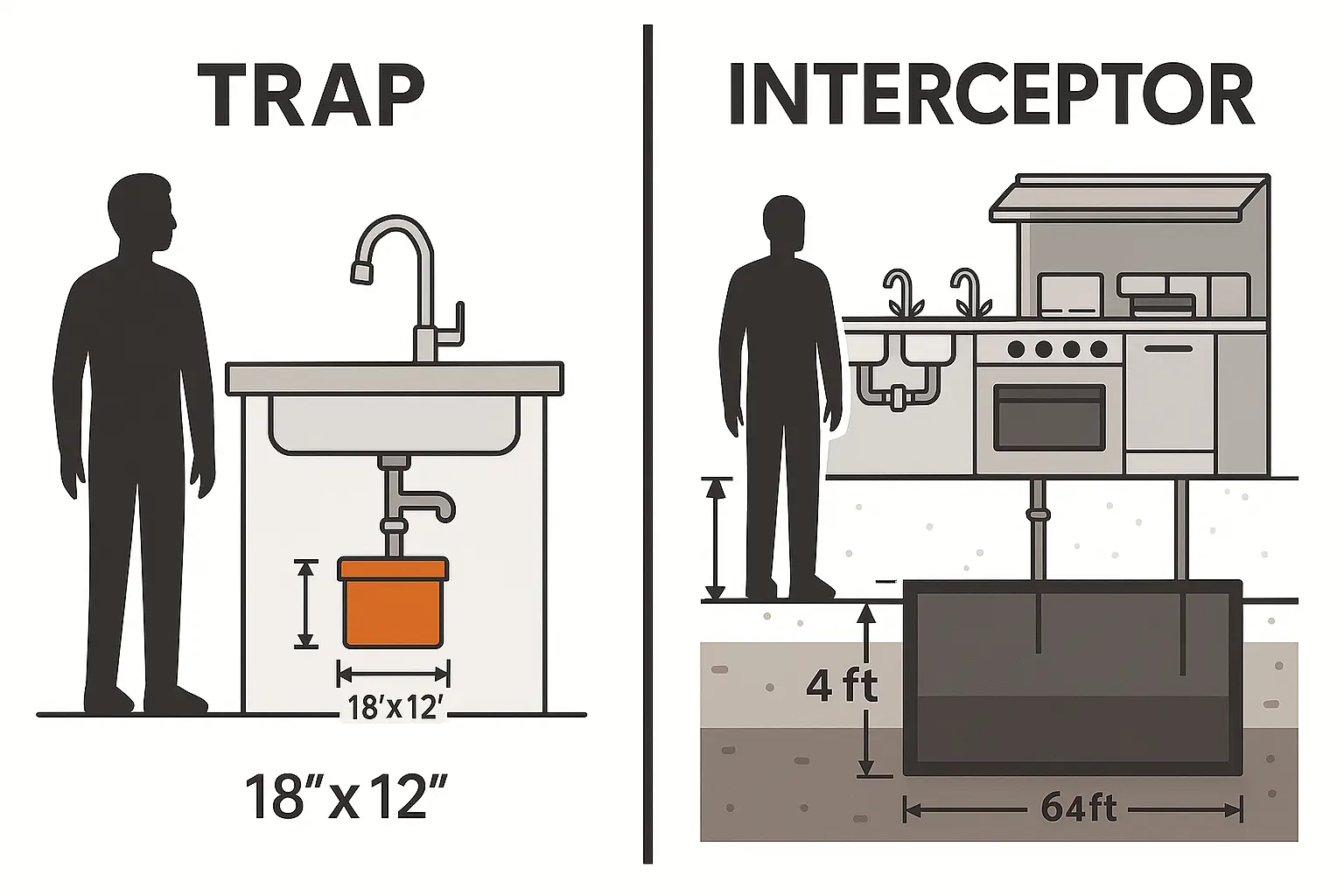
·
Grease Trap vs. Grease Interceptor: What’s the Difference?
Grease traps handle under 50 GPM for small kitchens; interceptors manage over 50 GPM for large operations. Choose wrong and face $25,000 fines, sewage backups, and business closures.
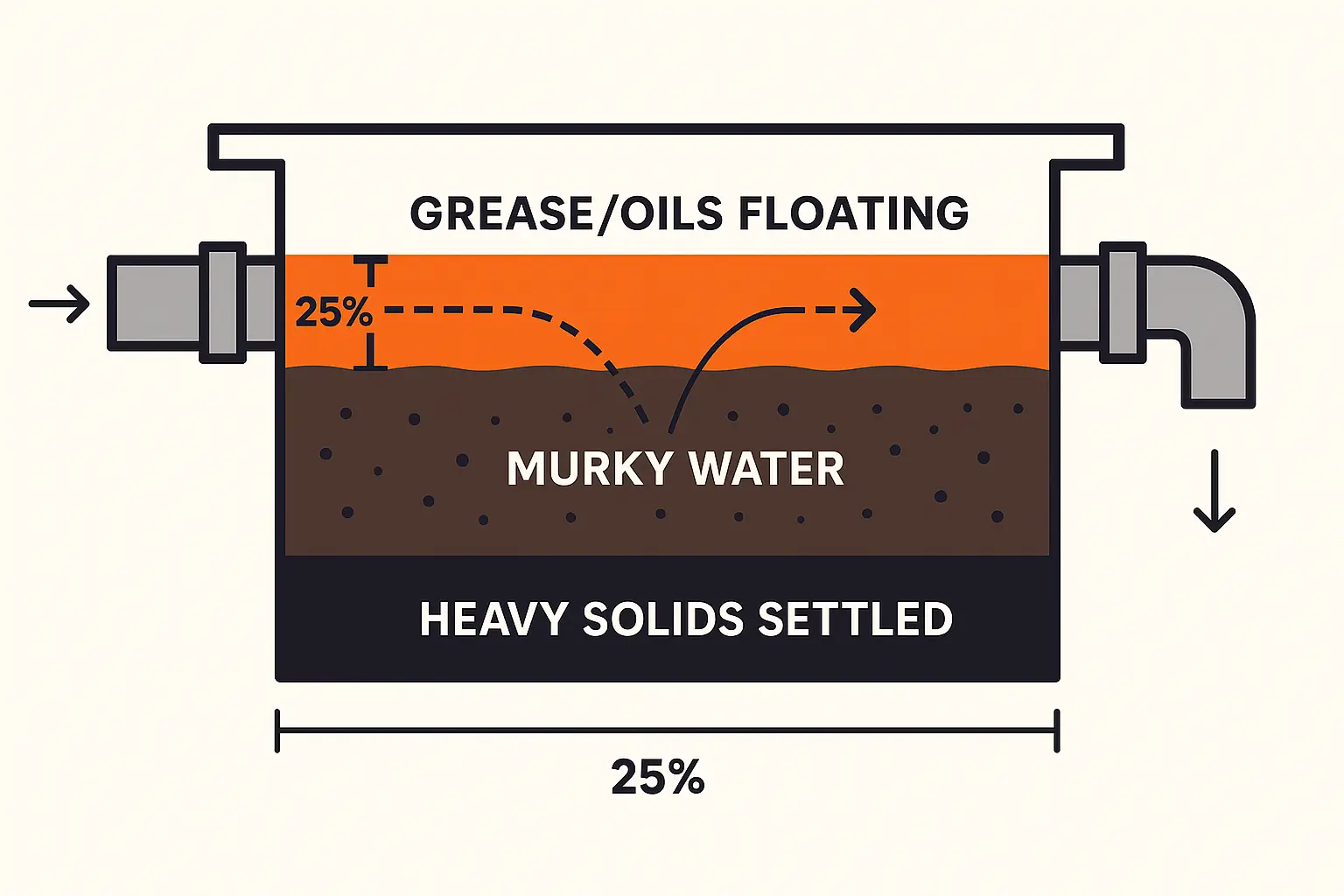
·
Troubleshooting Grease Trap Problems: Your Questions Answered
Bad grease trap smells signal expensive emergencies brewing. Stop odors fast with hot water flushes, enzyme treatments, and regular pumping. Our guide shows exactly how to prevent $50,000 disasters.
Not Sure If We Cover Your Location? Check Coverage Here →
